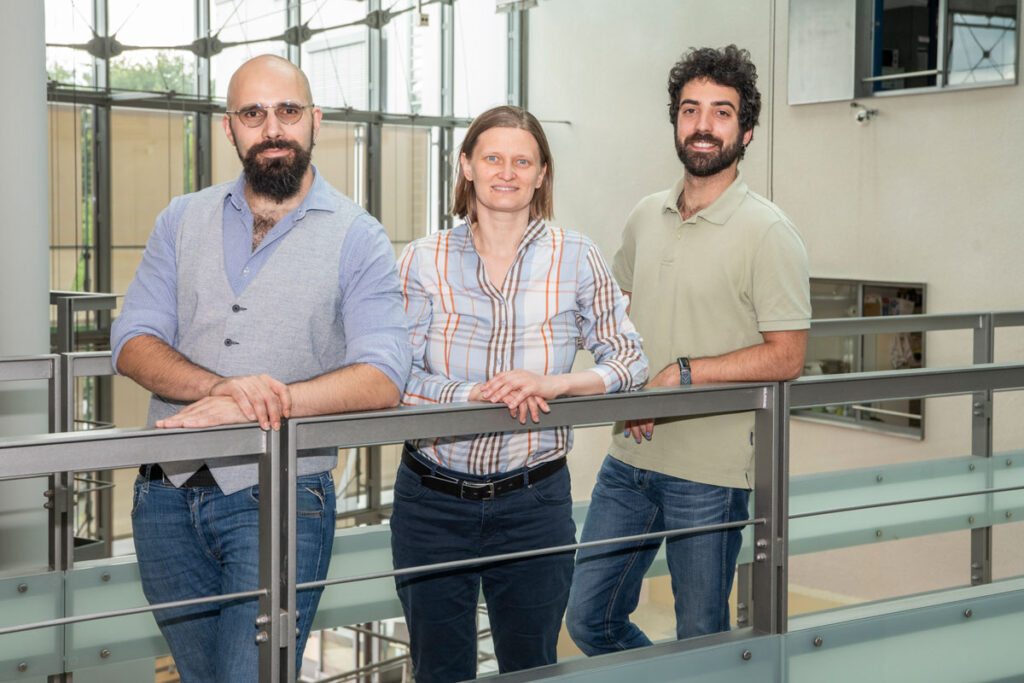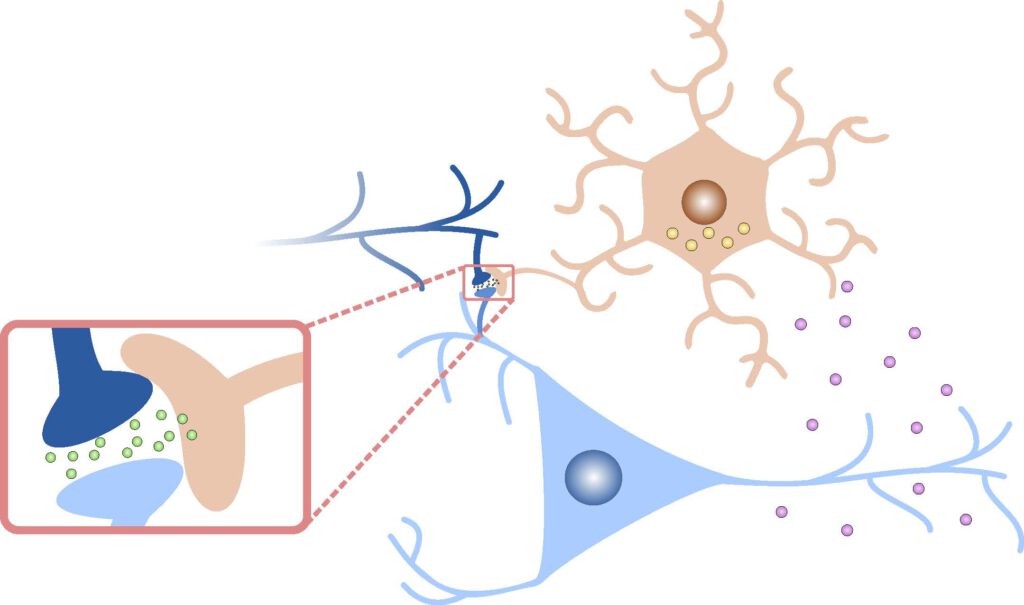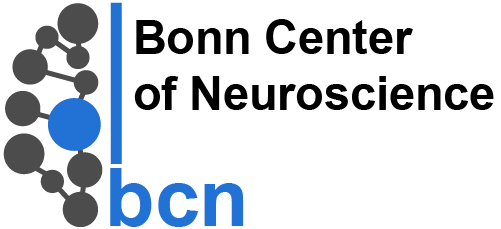Bonn, July 17- Bonn researchers solve the hidden mystery of the role of astrocytes for learning processes and memory in the brain

Star-shaped glial cells, so-called astrocytes, are more than just a supporting cell of the brain. They are actively involved in learning processes and interact with the nerve cells. But what exactly is it that astrocytes do? Researchers at the University Hospital Bonn (UKB) and the University of Bonn are using a biophysical model to clarify how astrocytes interact with nerve cells to regulate rapid adaptation to new information. The results of the study have now been published in the renowned journal “Nature Communications Biology”.
In the brain, synaptic plasticity – the ability to change neuronal connections over time – is fundamental to learning and memory. Traditionally, science has focused on nerve cells and their synapses. The discovery of intracellular Ca2+ signaling in astrocytes led to the idea that astrocytes are more than a glue holding the brain together and play a crucial role in this process. “Astrocyte dysfunction can significantly impair our ability to learn, highlighting their importance in cognitive processes. However, the exact functions of astrocytes have long remained a mystery,” says corresponding and co-senior author Prof. Tatjana Tchumatchenko, research group leader at the UKB’s Institute for Experimental Epileptology and Cognition Research and member of the Transdisciplinary Research Area (TRA) “Modeling” at the University of Bonn, describing the motivation for pursuing this question.
Unraveling the intricate dance of cellular interactions during learning
“Our work as computational neuroscientists is to use the language of mathematics to interpret the experimental observations and build coherent models of the brain,” says co-senior author Dr. Pietro Verzelli, a postdoctoral fellow in Prof. Tchumatchenko’s group. In this case, the researchers developed a biophysical model of learning based on a biochemical feedback loop between astrocytes and neurons recently discovered by Dr. Kirsten Bohmbach, Prof. Christian Henneberger and other researchers at the DZNE and UKB https://doi.org/10.1038/s41467-022-35620-8.
The biophysical model explains the learning deficits observed in mice with impaired astrocytic regulation and highlights the crucial role that astrocytes play in rapid adaptation to new information. By regulating levels of the neurotransmitter D-serine, astrocytes can facilitate the brain’s ability to efficiently adapt and rewire its synaptic connections. “Our mathematical framework not only explains the experimental observations, but also provides new testable predictions about the learning process,” says first author Lorenzo Squadrani, a PhD student in Tchumatchenko’s group.
This research bridges the gap between theoretical models of plasticity and experimental findings on the interactions between neurons and glial cells. It highlights astrocytic regulation as the physiological basis for dynamic synaptic adaptations, a central concept of synaptic plasticity. “Our findings contribute to a better understanding of the molecular and cellular mechanisms underlying learning and memory and provide new opportunities for therapeutic interventions targeting astrocytes to improve cognitive functions,” says Prof. Tchumatchenko.

Promotion:
This research was funded by the German Research Foundation (DFG) – Project ID 227953431 – SFB 1089 and the iBehave network, which is funded by the Ministry of Culture and Science of the State of North Rhine-Westphalia.
Publication: Lorenzo Squadrani, Carlos Wert-Carvajal, Daniel Müller-Komorowska, Kirsten Bohmbach, Christian Henneberger, Pietro Verzelli, and Tatjana Tchumatchenko: Astrocytes enhance plasticity response during reversal learning; Nature Communications Biology; DOI: https://doi.org/10.1038/s42003-024-06540-8
Scientific contact:
Prof. Tatjana Tchumatchenko
Professor for Computational Neuroscience of Behavior
Institute for Experimental Epileptology and Cognitive Research
Bonn University Hospital
TRA 1 “Modeling”, University of Bonn
E-mail: ‘tatjana.tchumatchenko@uni-bonn.de
This article was originally published by the University Hospital Bonn. For more information, visit UKB Newsroom.
